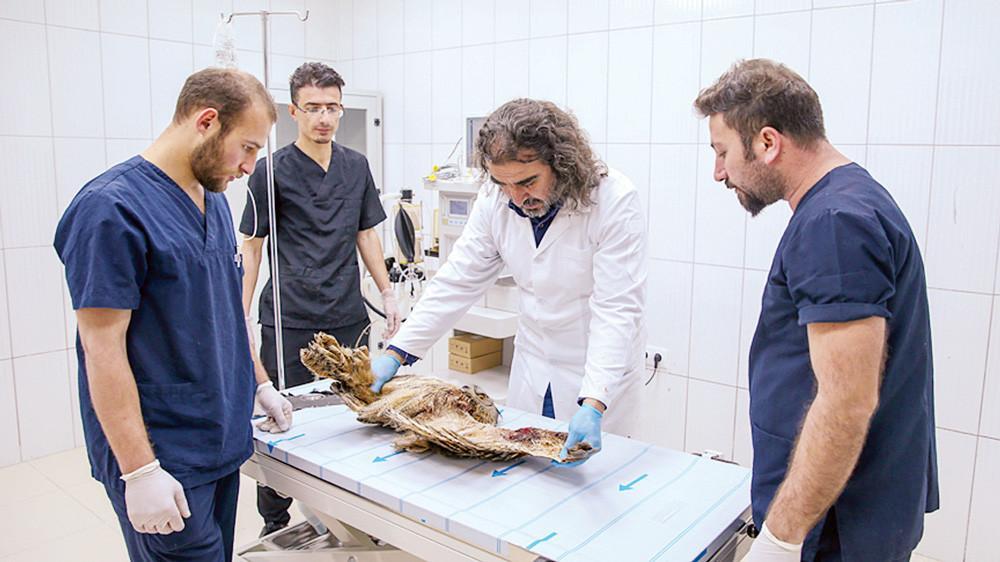
A university academic heads a rehabilitation center for injured animals, where they receive treatment before being released back to nature, in the eastern province of Van.
Van Yüzüncü Yıl University (YYU) veterinary department academic Lokman Aslan treats wounded wild animals in the region.
Hundreds of wild animals, which become the target of hunters or are left hungry and homeless, recover thanks to Aslan, who led the establishment of the Wildlife Animal Protection and Rehabilitation Center within the body of the university in Van.
Aslan said he decided to become a veterinarian when he was a child, when the sheep his family herded and looked after began falling ill and died.
He learned that veterinarians have a huge impact on society only after he became one. He believes that for nature to endure, they have to maintain clean environments and protect healthy animals.
He recalled the time when taking care of wild animals and veterinary medicine newly emerged in Turkey, a dying black vulture had been brought to an animal hospital.
“That was the first time I saw a black vulture. Nobody took care of it, but we did. It recovered and returned to nature. I studied this issue and believed that I would be more useful for the wildlife. That was when I first decided to work on wild animals. I took care of them voluntarily for five years. But when I saw that my efforts were not enough, we established the YYU Wildlife Animal Protection and Rehabilitation Center. Now we treat all wild animals in the region when they fall from their nests or become ill. Generally, 40 percent of these animals get recovered and are returned to nature. Our goal is to send all of them to nature without losing any,” he added.
Karasu wetland inhabitants in danger of extinction
Aslan said the inhabitants of the Karasu wetland in the Lake Van basin were in danger of extinction, adding that many species would not come to Van in the event of the extinction.
“Even if we wanted to spend millions of liras to recreate such a wetland, we wouldn’t be able to. This is why we need to protect it. Many endangered animals are brought to the center. This is how we know about the species living in the Lake Van basin,” he said.
Humans, animals and plants are part of a chain, according to Aslan, which should not be separated from one another.
“For the survival of nature, we should protect the wetlands and take measures to prevent forests catching fire and animals getting killed,” he said.
“Even though international deals were signed in the past century to protect the wildlife, nothing was done to this end. Technology has been destroying nature. In the past, only one tree used to get cut down in one day, now it takes five minutes to cut a tree down with machines,” he added.